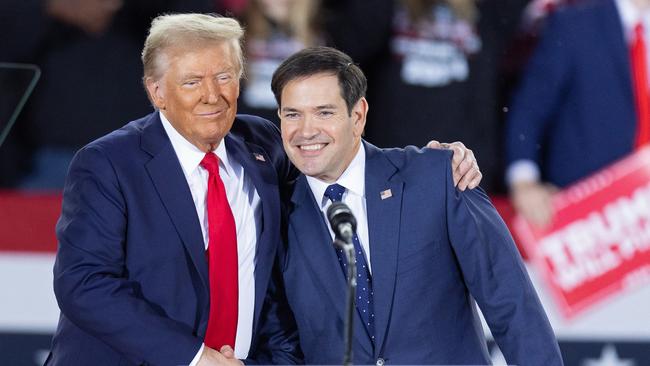Sifting out the truth from lies in an age of misinformation

A poignant question following the cliffhanger crescendo last week of what will be one of the most consequential US election of our lives.
I will leave the election analysis to those more qualified, but you would have to say that Jim Carville knew what he was talking about back in 1992 when he said “it’s the economy stupid”, closely followed by immigration in this election.
I am not saying other issues weren’t important, or whether America is ready for a female president let alone a woman of colour.
But, time and time again, we see people voting with their hip pockets when they stand at the ballot box and make a choice.
As we all digest what happened last week and countless journalists write countless columns, examining the entrails, one thing is for certain: democracy as we know it is in decline and we are on the cusp of an age of authoritarianism.
How did we get to this place?
No one is saying democracy is flawless or faultless. Winston Churchill put it best: “Democracy is the worst form of government, except for all those other forms that have been tried from time to time.”
Democracies are built on the ability and freedom to share information and have a reasonably civil conversation and contest of ideas. History is littered with dictatorial and authoritarian regimes controlling how information is shared and presented to their subjects.
Conversely, the hallmark of successful democracies is freedom of speech which has propelled the success of the democratic experiment for centuries.
In the past, in a democracy the arbiters, or the guardians of the truth or accuracy of the information that fed the democratic discourse, were media institutions which, most of the time, took the job very seriously, checking multiple sources before publishing stories as fact.
Mistakes led to swift backlash in the court of public opinion, damaging reputations and bottom lines.
Times have changed.
We live in an unprecedented era of misinformation and fake news. Never have we been bombarded with so much information from so many sources with so many questions about whether it is accurate or true.
Conspiracy theories run unchecked. Blatant lies spurt from politicians’ mouths. Some are fact checked, and then the fact-checking is ignored as the whiplash news cycle moves on. It’s not even a “cycle” anymore. It is more a constant accelerating linear stream of information and misinformation.

Algorithms increasingly rule our worlds, and this will only accelerate exponentially as artificial intelligence ascends.
At this point in the evolution of artificial intelligence we still largely control the input and often that instruction makes perfect business sense. Designing algorithms to maximise our attention, engagement and ad consumption are surely reasonable business objectives.
But, are the potential consequences truly understood?
We know that algorithms have learnt to increase attention and engagement by showing the user relevant content aligned with their preferences that trigger a strong emotional response. Often, the stronger emotional response can be negative and can include more sensational or controversial information. Truth is often not a consideration.
What are the implications for democracy if misinformation is amplified due to its ability to drive engagement across a network?
There is also the issue of living within the walls of our own echo chambers, without exposure to diverse perspectives and civil debate.
In his latest book, Nexus, Yuval Noah Harari uses an insightful metaphor to describe this phenomenon. He posited that we have transitioned from the “master metaphor” of a worldwide web to individual cocoons where external information is unable to penetrate – ending the age of a single shared human reality.
In this new information age, who are the guardians of truth and accuracy?
The sheer volume of information makes it nearly impossible to govern in a traditional media sense.
Perhaps the solution lies within the problem itself. Should we focus on developing algorithms and artificial intelligence systems capable of not only driving engagement, but also verifying multiple sources before amplifying or deprioritising information?
In a world where truth should remain objective, our role as citizens in a free and democratic society relies on our ability to be able to distinguish fact from fiction. The robust exchange of ideas that drives democracy forward must be anchored in verifiable truths.
To safeguard and preserve this democracy, we must be vigilant and question the integrity of the information we encounter on a daily basis.
It is also incumbent on media institutions to help us illuminate a pathway to the truth as we collectively navigate through this vast and often overwhelming flow of information.
Josh Faulks is the chief executive of the Australian Association of National Advertisers.





How will history judge our time?